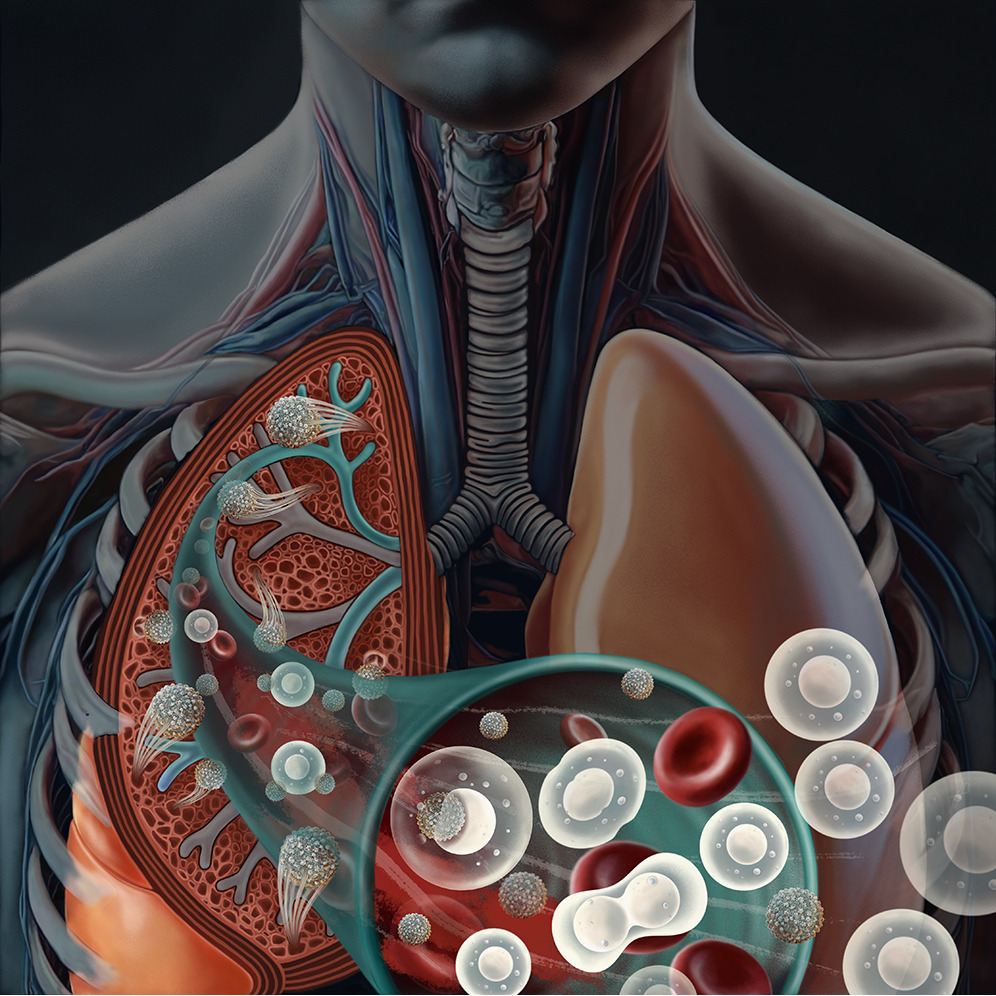
Hematopoietic stem cells are essential for sustaining the hematopoietic system throughout an individual’s life. Within the HSC hierarchy, long-term hematopoietic stem cells are at the apex, maintaining the system by their unique capacity for self-renewal and differentiation into all blood cell lineages. Traditionally, it was believed that long-term hematopoietic stem cell homeostasis is solely regulated within the bone marrow niche. However, our innovative single cell exosomal tracking analysis and in vivo transplantation studies revealed that lung cells play a significant role in this regulation through exosomal communication. Our in vivo primary and secondary engraftment studies demonstrate that exosomes derived from human primary small airway epithelial cells significantly enhance hematopoietic stem cell engraftment. We developed a single-cell exosome tracking pipeline to track these exosomes and elucidated their effects on target cell populations. By integrating single-cell RNA sequencing, exosomal miRNA profiling, and proteomics, we have identified specific genes, miRNAs, and proteins that regulate hematopoietic stem cell function, providing a comprehensive understanding of the molecular mechanisms involved in homeostasis. This insight suggests potential utility in modulating HSC function under experimental conditions, especially in conditions associated with low stem cell fitness including sickle cell disease and bone marrow failure.


